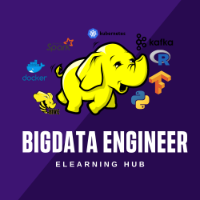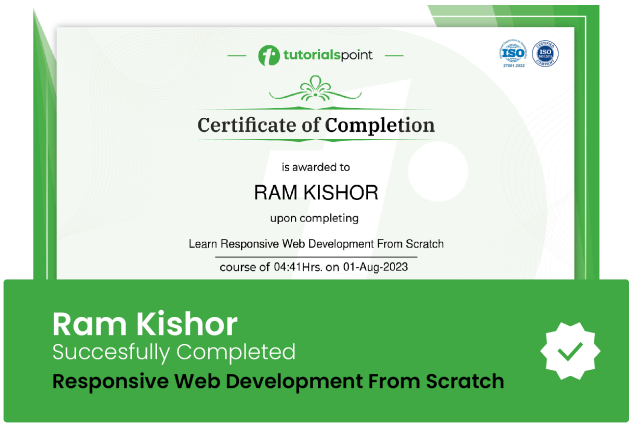Linux for Data Engineers (Hands On)
Learn everything about Linux for Data Engineers (Hands On) for beginners

Lectures -38
Duration -1.5 hours

30-days Money-Back Guarantee
Get your team access to 10000+ top Tutorials Point courses anytime, anywhere.
Course Description
In this Linux for Data Engineer course, I will introduce you to the Linux world. In 1.5+ hours, we will go through every step of Linux essentials that will provide you a wide knowledge for becoming a Data Engineering. This is going to be a fully hands-on experience, so roll up your sleeves and prepare to give it your best!
Data Engineering is one of the fastest-growing job roles and this should be no surprise. Data Science is in high demand and businesses have quickly found that having engineers to aid the scientists provides faster results.
Linux is a family of open-source Unix-like operating systems based on the Linux kernel, an operating system kernel first released on September 17, 1991, by Linus Torvalds. Linux is typically packaged in a Linux distribution. Distributions include the Linux kernel and supporting system software and libraries, many of which are provided by the GNU Project. Many Linux distributions use the word "Linux" in their name, but the Free Software Foundation uses the name "GNU/Linux" to emphasize the importance of GNU software, causing some controversy. Linux has grown to become a major force in computing - powering everything from the New York Stock Exchange to mobile phones, supercomputers, and consumer devices.
Popular Linux distributions include Debian, Fedora, and Ubuntu. Commercial distributions include Red Hat Enterprise Linux and SUSE Linux Enterprise Server. Desktop Linux distributions include a windowing system such as X11 or Wayland and a desktop environment such as GNOME or KDE Plasma. Distributions intended for servers may omit graphics altogether or include a solution stack such as LAMP. Because Linux is freely redistributable, anyone may create a distribution for any purpose.
Goals
What will you learn in this course:
- Why Linux is necessary for Data Engineer
- The goal of this course is to help you become familiar with the Linux operating system
- You’ll start with the fundamentals and progress to explore the various tools and techniques commonly used by Data Engineers
- This course is entirely self-paced, we include many lab activities to help you practice the skills as you are acquiring them.
Prerequisites
What are the prerequisites for this course?
- Basic Knowledge about Operating System

Curriculum
Check out the detailed breakdown of what’s inside the course
Introduction to Linux for Data Engineers
3 Lectures
-
Introduction 04:47 04:47
-
Introduction to Linux 01:26 01:26
-
Linux Distributions 03:11 03:11
Linux Installations and File system structure
4 Lectures

Basics of Linux (Ubuntu)
31 Lectures

Instructor Details

Bigdata Engineer
I am Solution Architect with 12+ year’s of experience in Banking, Telecommunication and Financial Services industry across a diverse range of roles in Credit Card, Payments, Data Warehouse and Data Center programmes
My role as Bigdata and Cloud Architect to work as part of Bigdata team to provide Software Solution.
Responsibilities includes,
- Support all Hadoop related issues
- Benchmark existing systems, Analyse existing system challenges/bottlenecks and Propose right solutions to eliminate them based on various Big Data technologies
- Analyse and Define pros and cons of various technologies and platforms
- Define use cases, solutions and recommendations
- Define Big Data strategy
- Perform detailed analysis of business problems and technical environments
- Define pragmatic Big Data solution based on customer requirements analysis
- Define pragmatic Big Data Cluster recommendations
- Educate customers on various Big Data technologies to help them understand pros and cons of Big Data
- Data Governance
- Build Tools to improve developer productivity and implement standard practices
I am sure the knowledge in these courses can give you extra power to win in life.
All the best!!
Course Certificate
Use your certificate to make a career change or to advance in your current career.

Our students work
with the Best


































Related Video Courses
View MoreAnnual Membership
Become a valued member of Tutorials Point and enjoy unlimited access to our vast library of top-rated Video Courses
Subscribe now
Online Certifications
Master prominent technologies at full length and become a valued certified professional.
Explore Now


 Updated on Apr, 2024
Updated on Apr, 2024
 Language - English
Language - English